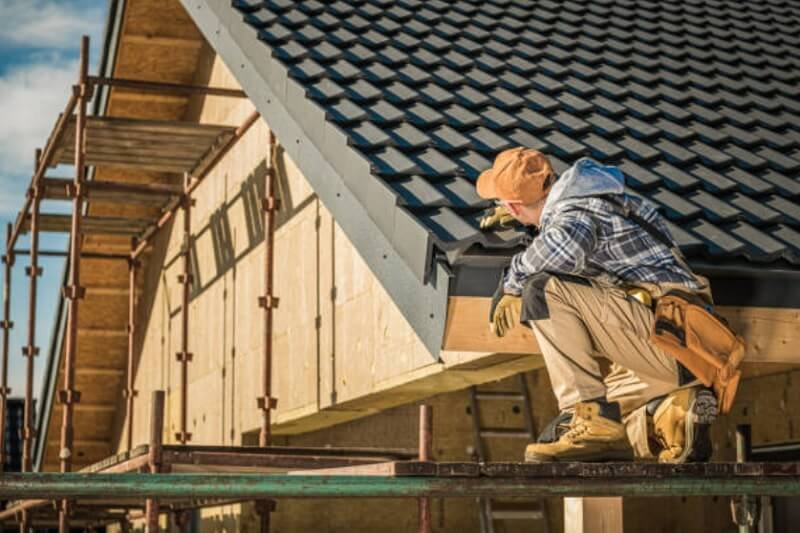Introduction
In the realm of real estate transactions, one crucial step stands between the buyer and the dream home: the house inspection. It is a determining factor where the status of the property is being fully assessed that could expose latent troubles that would eventually affect the entire transaction. so does the time this process take? Now, let’s examine the variables that define the timeline of a home inspection.
Factors that Affect Home Inspection Timeline
It is the number of vital factors reserved for the either total duration or the progress of the home inspection. Understanding these factors could help both sides know and remember what to expect during this important phase of the buying or selling process of a house.
1. Size and Condition of the property

The size and condition of the property itself might probably be the factors that will determine the duration of a home inspection the most. Long spaces require a longer time to make through the checking in depth. As there is more area to be inspected, the inspectors have to allow more hours to view every section with so much attention.
Additionally, properties that are of low maintenance, with signs of obvious wear, might require a more in-depth analysis for the discovery of any deeper problems. Some issues that may not be detected immediately, such as structural problems, water damage, or foundation issues, may take longer to identify, therefore prolonging the inspection period.
2. The age of the home
The age of the house is the other very relevant factor that is a determinant of the remit of the home inspection. The older the home the more obstacles and pitfalls will show up, for example: it may have an obsolete system, a worn-out infrastructure, or any other latent defects. The building officials may have to set aside more and more time to test the condition of the electrical wiring, problematic plumbing systems, and structural defects in old buildings.
On the contrary, new residences could not yield that many errors, but they have to be examined in detail to make sure that all systems are running smoothly. Not only older constructions but even those new ones need inspectors to do thorough inspections for potential construction defects, improper installations, and other issues which are overlooked and could adversely impact the durability of a property over time.
3. Accessibility
To be able to do everything is a very important element of home inspection. Inspectors need to be able to look at all sections of the properties in order to complete a detailed examination of them. Coverage will be provided in all areas such as attics, crawl spaces, basements, etc. that are hard to reach for the prevention of sudden problems. Disorder, furniture, or other things may not let the worker do their work very comfortably and as a result, it can delay the inspection. Ordering sellers to make all areas of the house accessible for inspection and being obstacle-free is a perfect way for sellers to assist in speeding up the process.
4. Inspector’s Experience and Methodology
The ability and processes of the inspector may also make a different part of the inspection period. The highly qualified inspectors may be more effective, they will spot any problems immediately and go through the inspection procedure swiftly. their rich work experience may enable to them detect “red flags” more easily and focus on sensitive areas that require more attention.
Various inspectors may use diverse methods and instruments that may impact the general timeframe of the inspection. Some inspectors may go a step further and use technological innovations, like thermal imaging or moisture meters, to detect hidden problems more accurately. On the other hand, these tools may take more time for an inspection process to be done, especially if the inspector has to conduct extra tests or an analysis.
Time Span of a Typical Home Inspection
The average duration for a home inspection is usually in the range of two to three hours. Nevertheless, there is a variation in the lifetimes between these factors. The inspection process could take less time for small properties, whereas large or more challenging homes may take longer.
There are multiple steps that you can take during a home inspection each of which has its own estimated time frame. The inspection will be done by evaluating the exterior, interior, structural components, electric systems, plumbing, HVAC, and many other things. The inspector carefully scrutinizes every part and searches for any traces of damage, defects, or safety problems.
Suggestions to Ice the House Inspection Process
Although the time span of a home inspection is affected mainly by external factors, homeowners and sellers can help make the inspection process speedier.

Firstly, preparation is key. Homeowners must take care that the property is clean, free from clutter, and available for the inspector. Elimination of obstacles and ensuring unrestricted access to all parts of the home will contribute to the whole inspection process.
In the first place, cooperation and close contact with the inspector are necessary. Homeowners should be accessible to the potential buyers; ready to answer questions and provide necessary details about the property. Also, communication can help route the inspection of any problems.
What to do After the Home Inspection
With the home inspection done, the next actions are the key for both buyers and sellers. Reading the inspection report becomes fundamental. The Buyer will have to carefully examine the report with the real estate agent and discuss any concerns and issues that have been raised by the inspection on the property.
If repair negotiations or credits get imposed by the inspection report, you might have to deal with such situations. Customers apply to the seller to fix certain conditions before the closing or agree to reduce the purchase price to account for fixing the cost of issues.
At the same time, carrying out the deal may require meticulous thought. purchasers should assess is the conclusion of the home inspection versus their budget and preferences. Buyers, meanwhile, might consider which issues the reviewer has raised as well as purchase the house at a discounted price if they find a problem.
Conclusion
Just like in a real estate scenario, a review by an inspector is a core phase in the process of buying or selling. The main point is that if the home audience understands what is considered to be a home inspection and how long it may take to complete the whole procedure, both buyers and sellers would have a better idea of how to prepare for this most significant stage. Through the application of these strategies and directives, attention to detail, communication, and vigilance on the part of all the involved parties may ensure that home inspection becomes a seamless and effort-free process.

